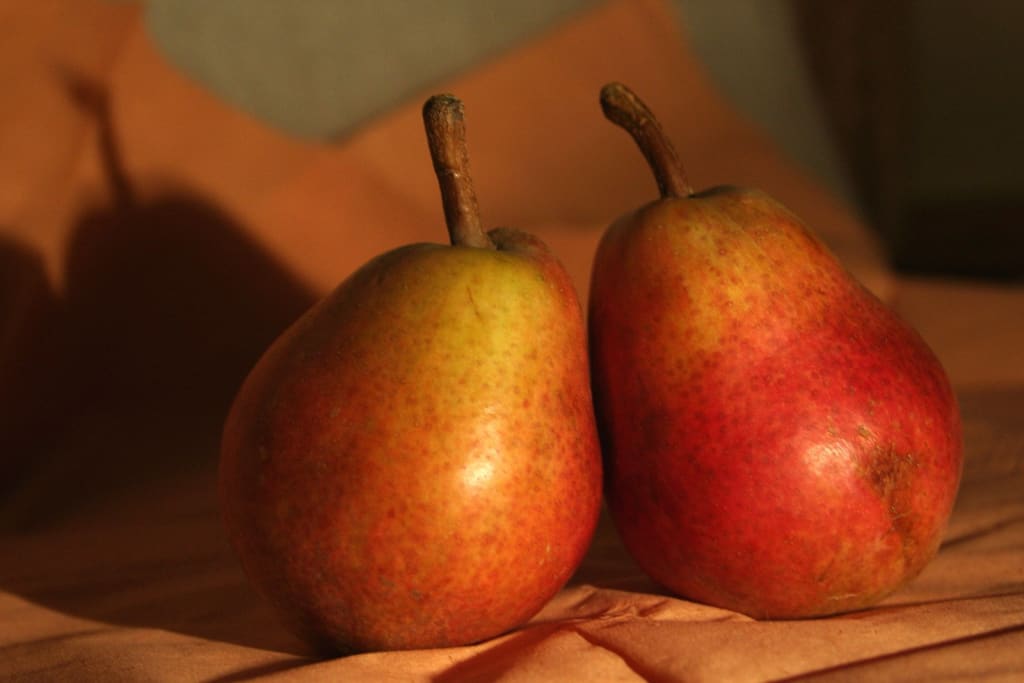Fall Fruits & Vegetables Fight Diabetes?
Why Everyone Should Be Eating Them

It seems that a lot of diabetics in society shy away from the natural sweetness of fall fruits. Some are afraid that fruits and vegetables will increase their blood sugar. In turn they believe that the increase in blood sugar will jeopardize their health. This type of thinking is wrong and misinformed. In truth, fruits and vegetables harvested in the fall offer many benefits to people who have type 1 and type 2 diabetes.
What vitamins and minerals come from this natural harvest? People with diabetes not only battle raised glucose levels (blood sugar) but raised blood sugar levels can also affect different parts of the body in negative ways. Decreased vision and problems with eyesight are one of the battles that diabetics face. High blood pressure and heart disease are other diseases that can plague men and women around the world. Diabetics also have problems with circulation, immunity to colds, immunity to infections, speed of healing, and decreased bone density.
Why is a diet high in fruits and vegetables important? Fruits and vegetables provide the fiber, acids, and vitamins that a person's body needs to repair itself. Why are the following fall fruits and vegetables so important to those men and women with diabetes? The following seven fruits and vegetables target the health problems that diabetics face every day of their life.
The seven important fruits and vegetables are sweet potatoes, pumpkin, apples, pears, beets, cabbage, and turnips. These items offer those struggling with diabetes vitamins like alpha linoleric acid, B2, B6, C, K, and calcium. What do each of these vitamins and minerals do?
Skip the sweet potato pie and try roasted sweet potatoes as a side dish. Sweet potatoes have a large amount of fiber that helps remove toxins and large amounts of glucose from a persons body. Though sweet potatoes are considered a starch, they affect a person's blood sugar slower than white rice and bread.
Skip the pumpkin pie and try baked pumpkin with a small amount of butter and cinnamon. Pumpkin contains alpha-linolenic acids that help the body regulate and fight heart disease. The cinnamon is an added bonus for those with diabetes.
Reports say that eating cinnamon on fruits and vegetables like sweet potatoes and pumpkins actually benefit a persons A1C level. Every diabetic knows that a lower A1C means a healthier body and the affects of high blood glucose in the body. Mayo Clinic sited that one study published in 2009 found that a 500 mg capsule of cinnamon taken twice a day for 90 days improved hemoglobin A1C levels.
An apple a day definitely keeps the doctor away. This is especially true for Fuji apples which have been cited to be beneficial to the heart. There are other great things about a raw apple though. Apples offer folic acids, vitamin B2, vitamin B6, vitamin C, and soluble fiber to a person's diet.
Why are folic acids so important? Folic acid is a B vitamin. B vitamins are very important to people living with diabetes because the benefits battle the internal and external affects of diabetes. This included dry, ashy, and painful skin. Folic acid also fights against skin conditions because this amino acid helps produce new cells in the body.
B2 benefits the immune system, circulation system, and metabolism of the body. Diabetes is classified as an auto immune disease. This is why vitamins like B2, B6, and C are important because they increase the body's ability to process glucose, fight off colds, and fight off infections in the body.
Pears... the warriors against colds and heart disease. Not only do pears have soluble fiber that helps remove toxins from the body, they help with heart disease. Vitamin K helps with increase circulation and the production of red blood cells.
Beets may be high in glucose but they are known as the root vegetable that helps the circulation super highway to a person's brain cells. Not only does this improve removal of glucose from the body, but it can decrease memory loss and concentration issues.
Cabbage any way a person cooks it adds vitamin A & C to a person's diet. Everyone knows that vitamin C supports a better immune system. How does vitamin A benefit the body? Vitamin A is also known as beta-carotenes. An increase in beta carotenes will benefit a person's eyesight and immune system.
Turnips. Not a vegetable highly eaten in American diets. A shame since turnips have tons of fiber and calcium. Many know that fiber helps with the removal of free radicals and toxins in the body. It's important that people dealing with diabetes consume enough daily calcium. There are many joint and bone issues that can affect a person who is diabetic including Osteoporosis.
About the Creator
Catherine Maher
What can I say about myself. I work in EMS. I love the arts and dabble in a lot of them such as photography, poetry, singing, acting, and costume make up. 16 yo marriage. 26 years of work experience to share with everyone.






Comments
There are no comments for this story
Be the first to respond and start the conversation.